
Politics
22:14, 20-Sep-2018
Moon Jae-in – the middle-man between Kim and Trump
Updated
16:47, 26-Sep-2018
By Li Zhao
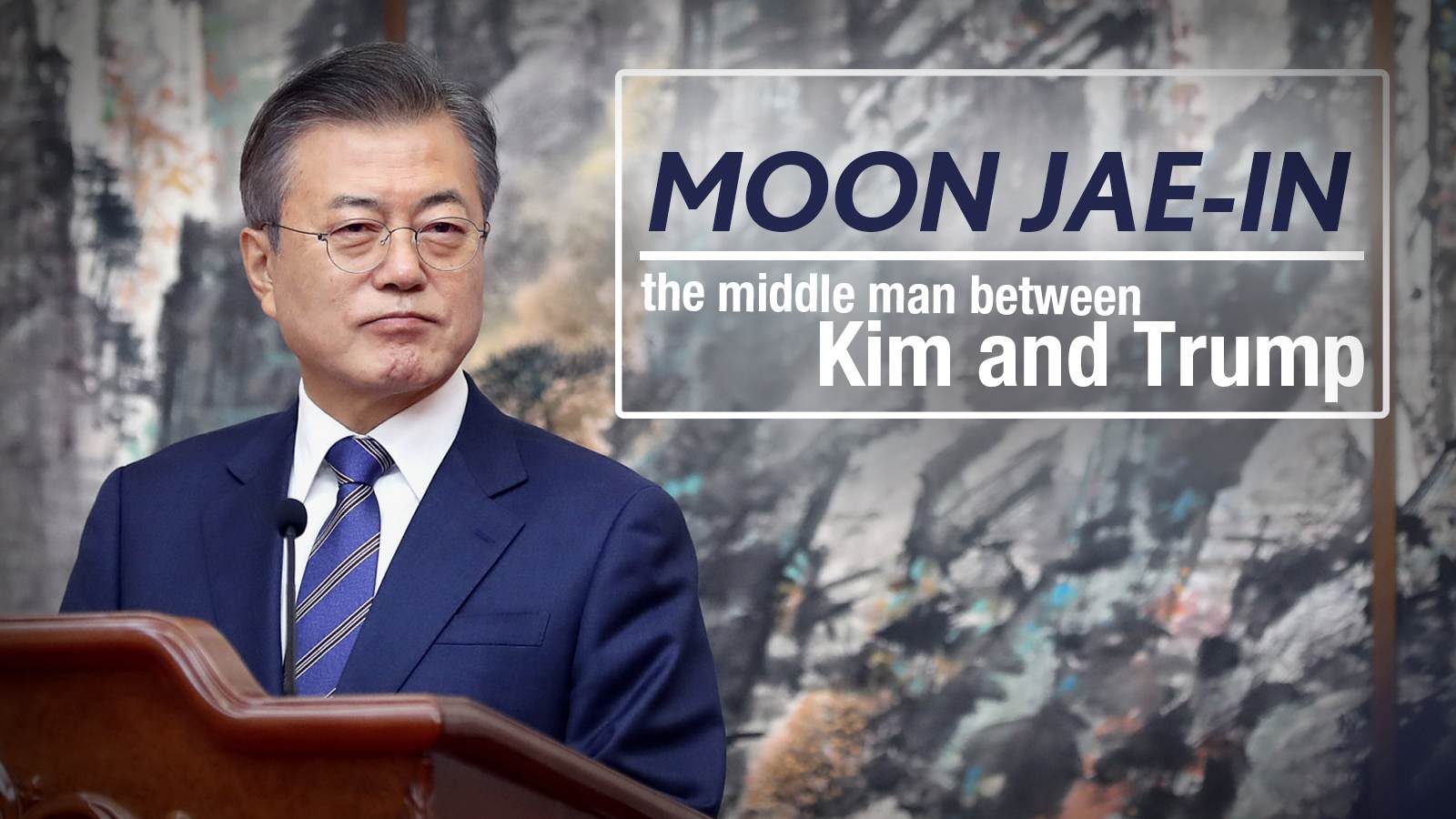
Just when everyone thought the dialogue between the Democratic People's Republic of Korea (DPRK) and the United States had hit an impasse, the President of the Republic of Korea (ROK) Moon Jae-in oiled the wheels of diplomacy and flew to Pyongyang for a three-day summit with Kim Jong Un this week.
Moon returned home on Thursday, with concrete steps nudging the progress in the Korean Peninsula issue further.
The DPRK will "permanently shut down" a major missile test facility "in the presence of experts from relevant nations as well as closing other nuclear facilities if the US agrees to take corresponding actions," announced Moon at a joint conference on Wednesday with Kim.
02:17
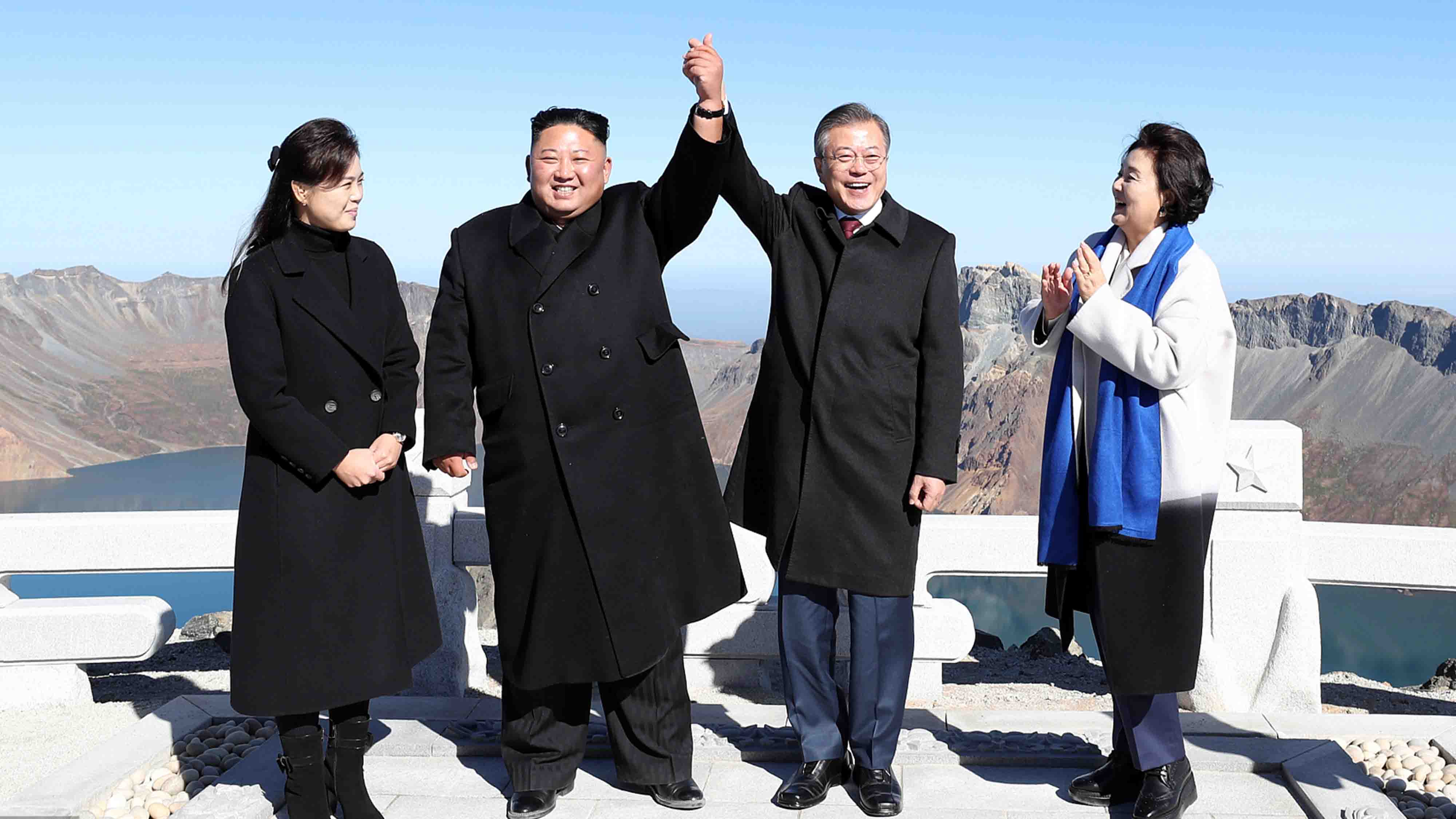
Many say the olive branch Pyongyang offered this time can greatly get things moving again.
Moon's personal ties
President Moon was born in a poor family, with roots from the DPRK. His mother sold eggs to feed the family.
Both of Moon's parents were among 100,000 civilians who fled the DPRK in the Hungnam Evacuation, one of the US military's largest civilian rescues.
Yet, Moon's aunt was left behind, and her sister, Moon's mother, had long yearned to meet her again. This explains in part why reunions of separated family members and relatives are high on Moon's agenda.
"When peaceful reunification comes, the first thing I want to do is to take my 90-year-old mother and go to her hometown," Moon wrote in a book published in 2017, months before his election.
It all started in May
The ROK president's role came into sharp focus roughly four months ago, after the DPRK threatened to withdraw from a summit between Kim and Trump.
ROK announced its president intended to more actively perform "the role of a mediator," seeking to bridge the gap between Pyongyang and Washington.
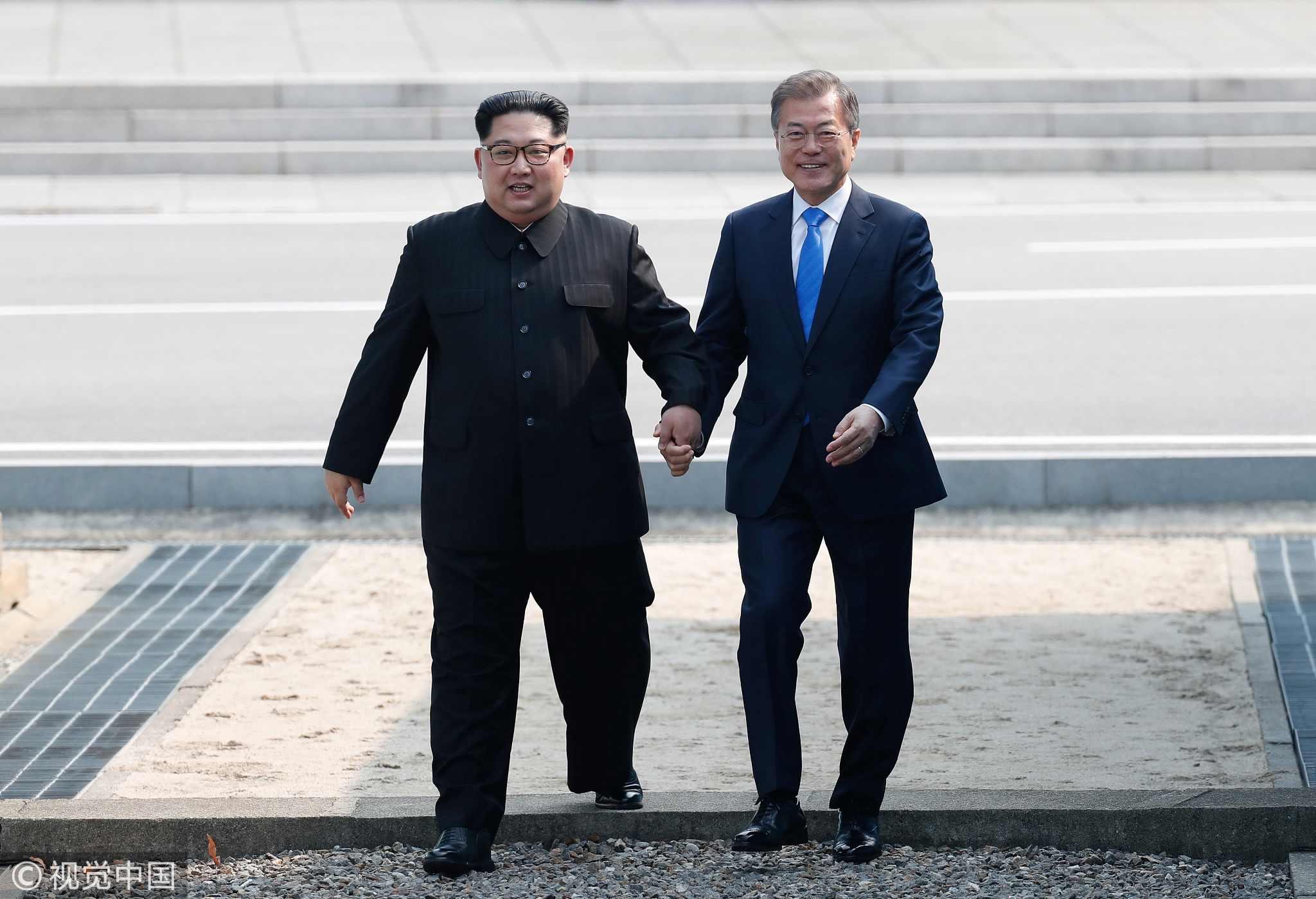
DPRK leader Kim Jong Un (L) and ROK President Moon Jae-in cross the Military Demarcation Line. /VCG Photo
DPRK leader Kim Jong Un (L) and ROK President Moon Jae-in cross the Military Demarcation Line. /VCG Photo
Calling the US' maximum pressure strategy – having Pyongyang first dismantle its nuclear and missile program before easing sanctions – "a total failure," the Moon administration decided to take things slowly.
"The deadlock resulted from mutual demands that the other side take action first, and I think we can surely find a point of contact," Moon said last week.
"One of the roles we should play in the middle is to find the point of contact and present it, and expedite dialogue again to accelerate the denuclearization process."
Moon's first major undertaking
After a slew of diplomatic flip-flops surrounding the highly anticipated Trump-Kim summit, Trump called off the meeting slated for June 12 on May 24 in an open letter, citing "tremendous anger and open hostility" from Pyongyang.
Within two days, Moon was in the demilitarized zone and held a surprise two-hour meeting with Kim.
At a later televised press briefing, Moon expressed Pyongyang's commitment to the complete denuclearization of the Korean Peninsula and to the planned meeting with Trump.
"I told Chairman Kim that if he decides and put into practice a complete denuclearization, President Trump is willing for economic cooperation and ending hostile relations,” Moon said, adding that both himself and Kim were looking forward to DPRK-US summit.
Hours after Moon's speech, Trump responded via twitter, "It will happen!"
The meeting was eventually held according to plan.
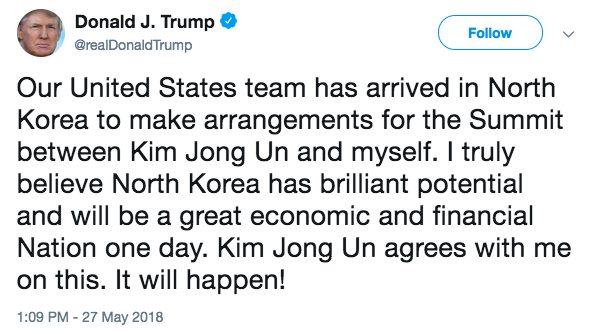
Screenshot from Trump's twitter account
Screenshot from Trump's twitter account
What's next?
The success of the recent summit between Moon and Kim, which many have called the "toughest challenge" for Moon so far, shows that the ROK president, once again, pulled it off.
After a joint statement by Moon and Kim, Trump immediately took to Twitter, calling the developments "very exciting."
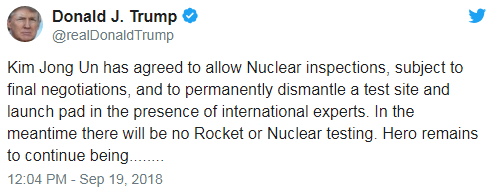
Screenshot from Trump's twitter account
Screenshot from Trump's twitter account

Screenshot from Trump's twitter account
Screenshot from Trump's twitter account
The ball is in US' court now.
"What the United States needs to be looking for right now are genuine steps from the [DPRK] that indicate a willingness to move the process forward," Michael Fuchs, former deputy assistant secretary of state for East Asian and Pacific affairs, told CNN.
In just a few days, Moon will fly to the US and hold talks with Trump on the sidelines of the United Nations General Assembly, during which he will deliver a message from Kim.
The DPRK leader is now saying he wants to meet Trump for another summit to continue their talks. Will we witness another historic meeting between the two men? We might not need to wait long for an answer.

SITEMAP
Copyright © 2018 CGTN. Beijing ICP prepared NO.16065310-3
Copyright © 2018 CGTN. Beijing ICP prepared NO.16065310-3